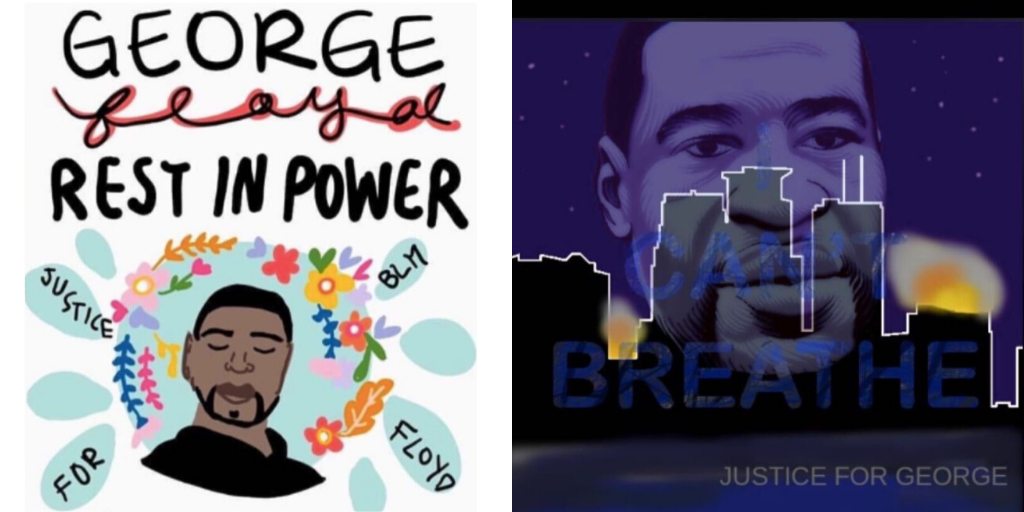June 2, 2020
#JusticeforGeorgeFloyd Action Toolkit for MN Educators

Our city is facing unprecedented times, and we need to treat the centuries-long outbreak of anti-blackness and systemic racism within our law enforcement, our schools, and our neighborhoods with the same urgency that we have treated COVID-19. The direct relationship between our schools and our neighborhoods reveals the power and influence educators have in making real change within the classroom to effect our neighborhoods, and thus, our city.
It’s on us as educators, particularly those of us who are white, to help meet urgent needs, heal, and organize around systemic solutions, and we should follow the direction of our partners who are sharing needs and pushing solutions around pressing issues. There are many community sourced resource lists available that we should all act upon.
The following suggestions are offered with humility and with deference to our black community.
White people and non-Black people of color, start within yourself: Uncover and address personal biases, anti-Blackness, and racism that show up in your relationships with your students. Read “White Fragility” by Robin DiAngelo, dig into “How to be An Antiracist” by Ibram X. Kendi and “The New Jim Crow” by Michelle Alexander. For a perspective on being Black in America, try “Tears We Cannot Stop” by Michael Eric Dyson, “Citizen” by Claudia Rankine, “Between the World and Me” by Ta-Nehisi Coates, and James Baldwin’s “The Fire Next Time.” Broaden your engagements with influential black leaders on social media, such as @deray, @MsPackyetti, @ClintSmithIII.Listen to and learn from your black, brown, and indigenous colleagues: Seek to understand their experiences without centering yourself or placing the burden on them.Engage your students: Hold healing and processing spaces that allow students to share their experiences, feelings, and visions for the future. In addition, do your part to keep your students in the classroom learning rather than resorting to push-out practices such as suspensions and expulsions. Check out classroom resources such as School to Prison Pipeline math and A Teaching Unit on Student Activism in History and Today.
Organize your networks: With your colleagues, students, and their families, host organizing planning sessions where you identify what needs to change in your school, generate solutions, and figure out a plan of action for making those changes. Let us know if you’re interested in attending an organizing workshop.
Call upon your unions: Organize your colleagues to ensure your union uses its power within the labor movement for the benefit of Black people and other communities of color. Teachers’ unions can influence police federations to improve their policies and practices. Unions can amend their own contracts and change the culture of their unions to put students first, hold their members accountable for values of equity and justice. See this example from members of the Minneapolis Federation of Teachers.
Engage with your school leaders: Push school and district leaders and elected officials to ensure that policies and procedures don’t criminalize black children. This could include revising codes of conduct, investing in restorative practices and alternative discipline models, removing racist contract and policy language, or ending contracts with law enforcement.
Speak up to elected officials: Call upon the state legislature to take up the bill during special session that would ban suspensions for preschool children.
Stay fed up: Remember that this fight doesn’t end when the protests die down – stay committed to ending racism within your locus of control within the personal, interpersonal, and structural spheres where racism persists.
What else should educators do? If you have other suggestions for what should be included in this toolkit, please reach out to Shannon at [email protected].
Currently Reading
#JusticeforGeorgeFloyd Action Toolkit for MN Educators